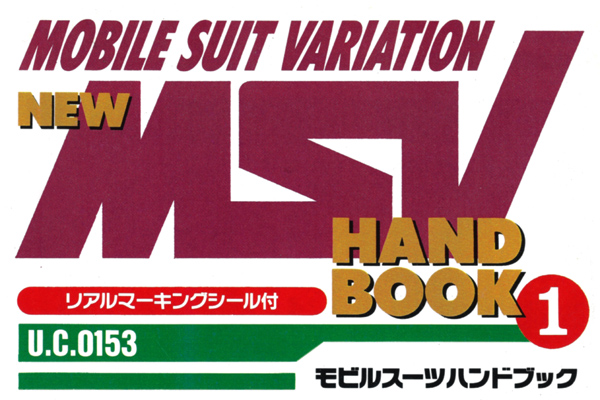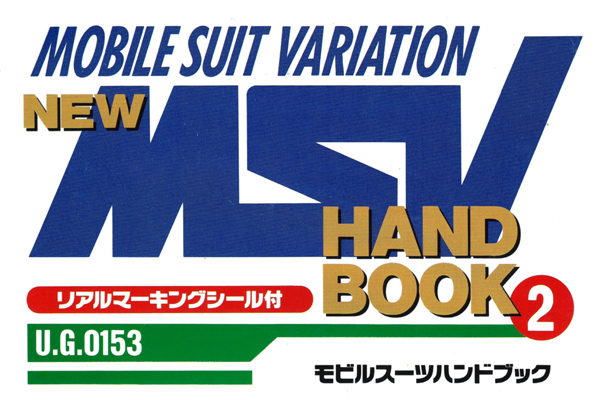DIRECTOR TOMINO’S INCISIVE COMMENTS ON GAMES!
![]()
Currently, Turn A (∀) is nowhere to be found in various manufacturers’ lineups of games on offer. When questioned, what does Director Tomino say, will Turn A ever become a game, or will it not?
IS THIS TRULY THE LIMIT TO COMPUTER GAMES?
Tomino: To put it bluntly, turning Turn A into a game is impossible if you only think about current games. The theory of games conceived by game developers is just too narrow. With such a sheer volume, many games are essentially the same, differing only in name. From this perspective, creating a game from Turn A would be a tall order. But is the current crop of computer games truly the extent of what is possible? This has been a question of mine for about three years now. Is there not potential for something different? I’d like to point out that games aren’t so simple. Also, for those currently making games, I feel they are unlikely to birth any new ideas.
―――Is it because they are bound by genre?
Tomino: Exactly, you’ve hit the nail on the head.
―――Within these bounds, it would be difficult to make a game of Turn A, wouldn’t it?
Tomino: They make such cruel judgments, you see. “Turn A lacks character,” they say. It makes me think that games are like that. I confess, at heart, I am not fond of games. One reason is my own lack of competitive spirit, but I urge you not to misunderstand; there’s more to it. What follows is a sense that games inspire escapism from the real world, and I worry that they serve only to accelerate such tendencies. That is why I have little interest in the talk of games. Even as I say this, what I expect from games is something that can be enjoyed and completed in fifteen minutes. But a certain sense of coercion comes with gaming, and I question the value of games that wield such a strong allure. For instance, I tried in vain to play an RPG, and I couldn’t because I found no enlightenment in playing, no sense of becoming a victor in the game world. Even when you win, they don’t allow you to earn money. Shogi and Go are predicated on an unspoken rule that you must share space with others and compete. What’s scary about computer games is the absence of these elements and the enhanced sense of encapsulation, don’t you agree?
―――Are there more games devoid of competition cropping up?
Tomino: Which is why escape from reality accelerates. They’re schemes wholly designed to cultivate societal recluses; in my mind, they don’t qualify as games. As the virtual world begins to dominate real-world time, I see them as tools that set us on a path of devolution. It feels like the SF-like aspects of reality are becoming increasingly perilous.
―――With connectivity to these networks, do you think it will accelerate even further?
Tomino: It’ll speed up, no doubt. The nature of networks doesn’t gripe about productivity decline, like some capitalists. What’s crucial is that by indulging in such things, we decline and lose our sense of self. If a person can give up their self to such an extent, I say, they might as well die. I believe there will come a time when people realize that this system accelerates disease, and, having faith in the intelligence of humanity, I believe there will come a time when people will break free from games.
WHAT KIND OF GAMES WILL BE NECESSARY IN THE COMING TIMES?
Tomino: Even so, there’s a game my wife and I continuously play called ‘Puzzle Bobble’ (laughs). Though we’ve grown bored of it, it’s just perfect for a 30-minute play-through. As for ‘IQ,’ we lost interest after playing for three months. When we bought it, we thought, ‘This might be a game-changer, but it had a major flaw.
―――What’s that?
Tomino: It lacks replayability. You always have to start from the beginning. It infuriated me, thinking they should have programmed it to remember that level of progress. The best it can do is display the highest score, but it seemed absurd that you always had to start from scratch. So, out of stubbornness, we played to the end but never got a glimpse of the game creators’ skill level. They should have taken into account that there might be various players with different approaches to the game. After all, people don’t always start reading a magazine from the first page, right? The inability to consider such scenarios might be because the industry is young, but it fundamentally thinks digitally.
―――Most games are designed with the idea that you have to start from the beginning.
Tomino: Yes, that is true, but starting from the first stage is not always fun. Let players start from a challenging stage without wasting time if that’s the case. Video games have a very childish problem. But, because inputting into a computer appears to be advanced, many staff misunderstand that they are doing high-level work. I believe the people creating these things don’t really understand what an interface is. I can’t see these long games represented by current RPGs, spanning three or four CDs, as actual games. There’s no playing that would keep adults engaged for two or three hours. If they have that much time, I’d rather they have sex. It’s definitely healthier to seduce and enjoy each other’s company. For me, games and sex go hand in hand. This might sound extremely rough, but I don’t think computer games will last forever.
I’m not belittling games. I’m interested in them, and I want to participate. But I feel the same resistance from games that erase the ‘individual’ as I felt when I was creating commercials in my twenties. Unlike commercials, I understand that a certain authorship can come out in games, but when I saw the PlayStation 2, I thought it needed something gentler, not more advanced. Not necessarily for toddlers, but I’m most interested in what kind of game could be involved in emotional education for lower-grade students without adverse effects. This might be a huge hint, but I’ll say it. Perhaps such simple games could be good for dementia patients. Everyone should know that games are simple things. The most astonishing thing to me is Go. What could be a game so simple that an adult could play it their whole life? If it could be made so simply, we should aim for that. So, I don’t understand why there are Gundam games with complicated mechanics.

PUBLICATION INFORMATION
Publisher: Tokuma Shoten
Released: 2000.01.10
Price: 1,238
Size: A4
![]()





